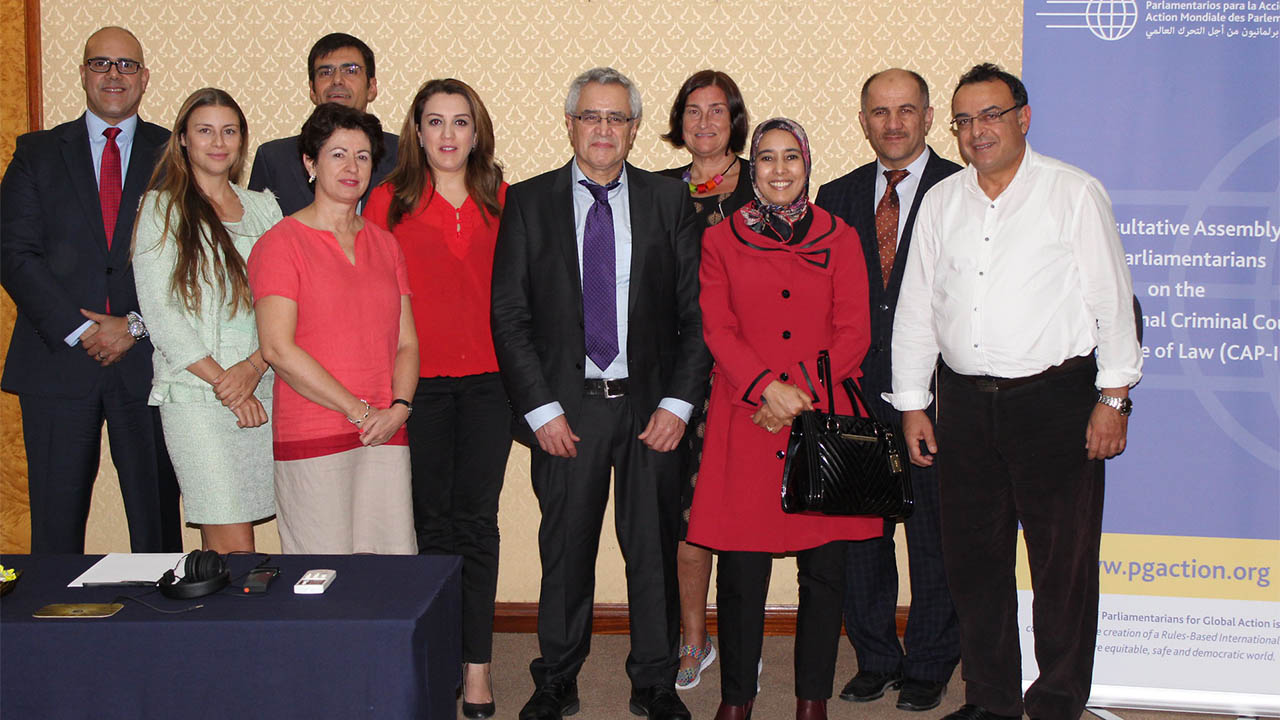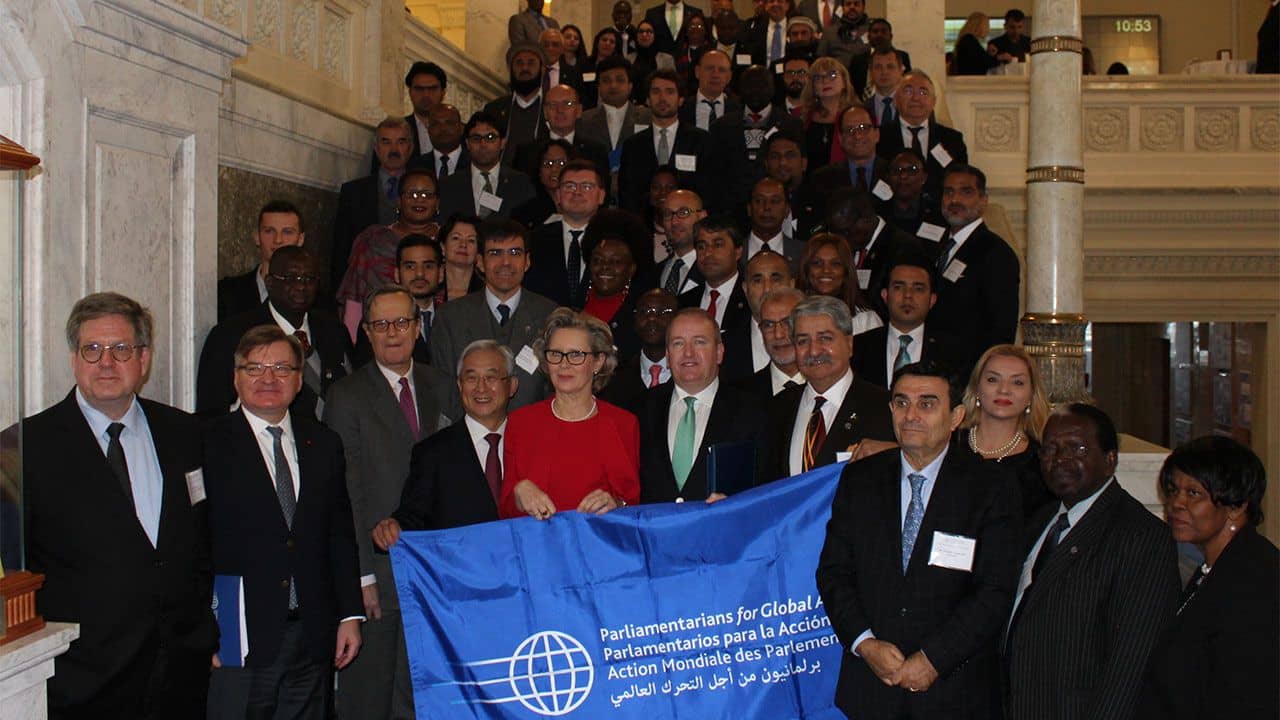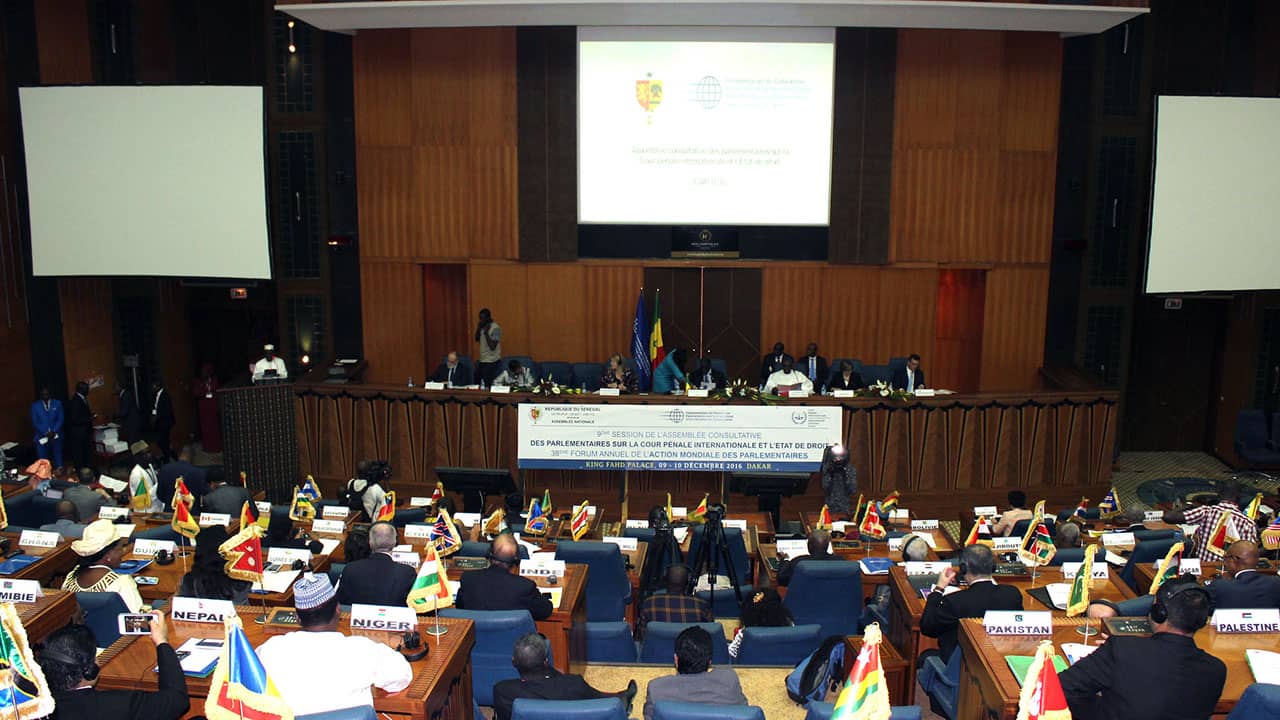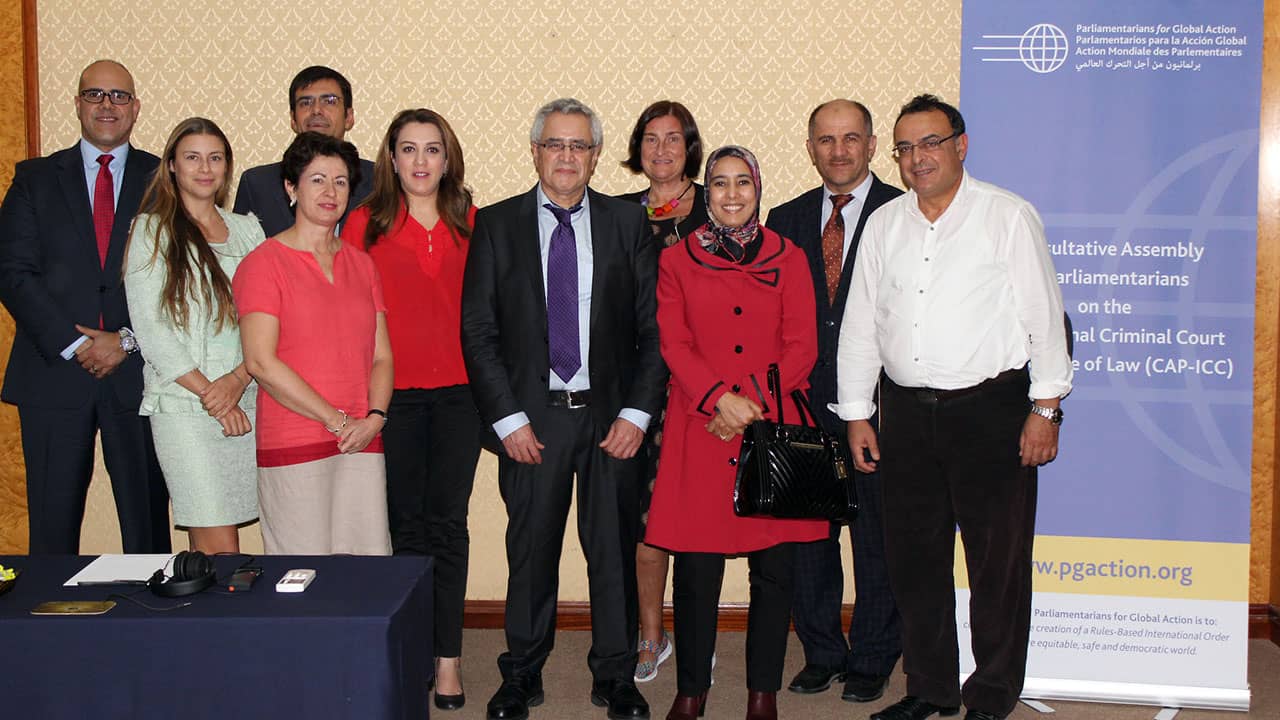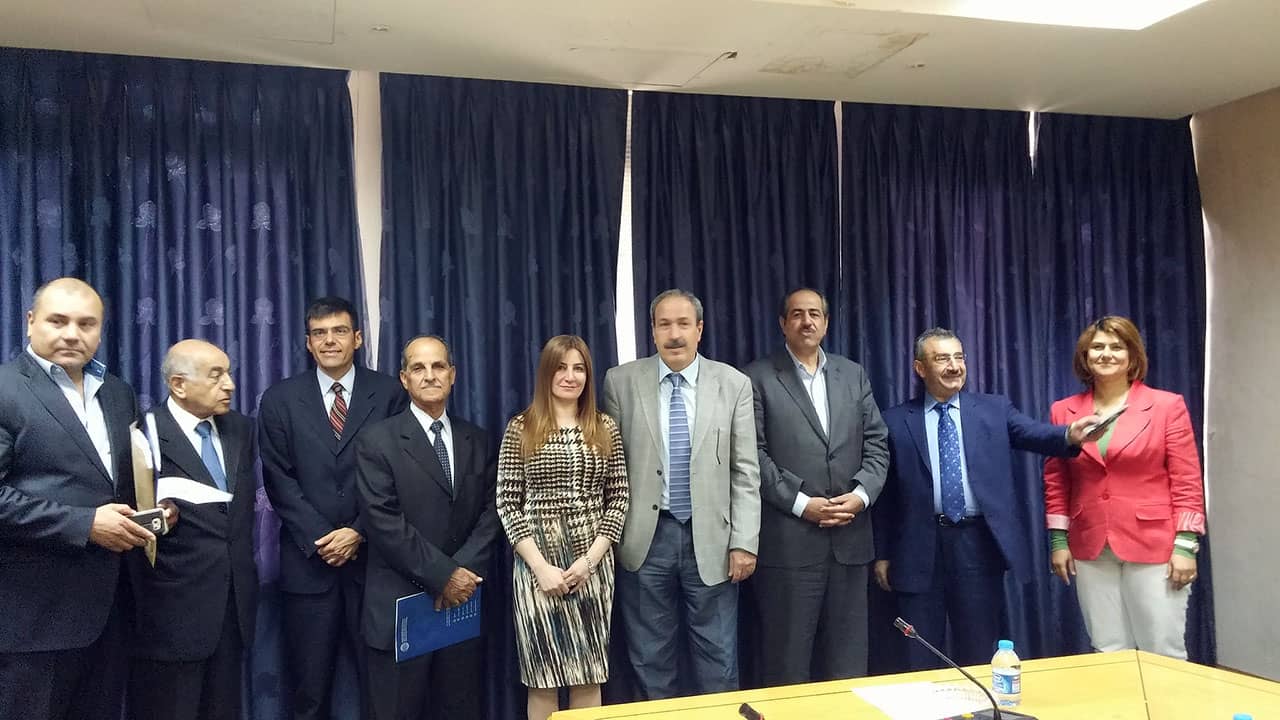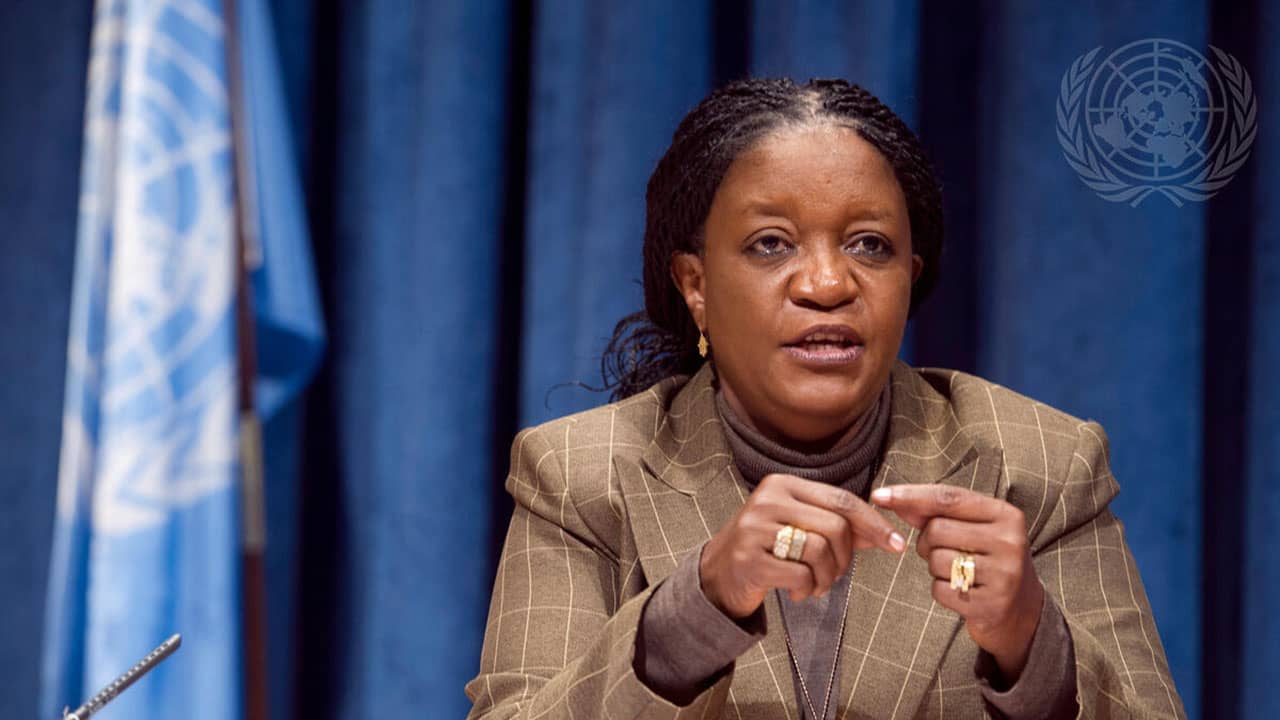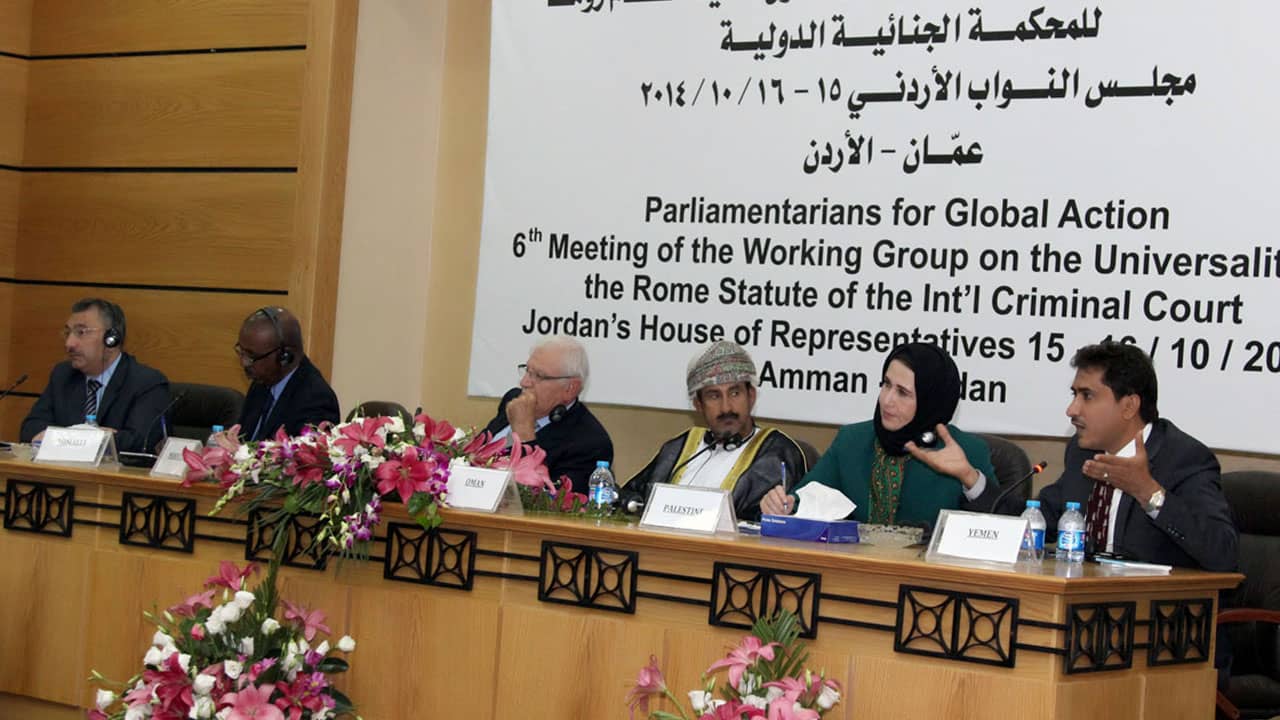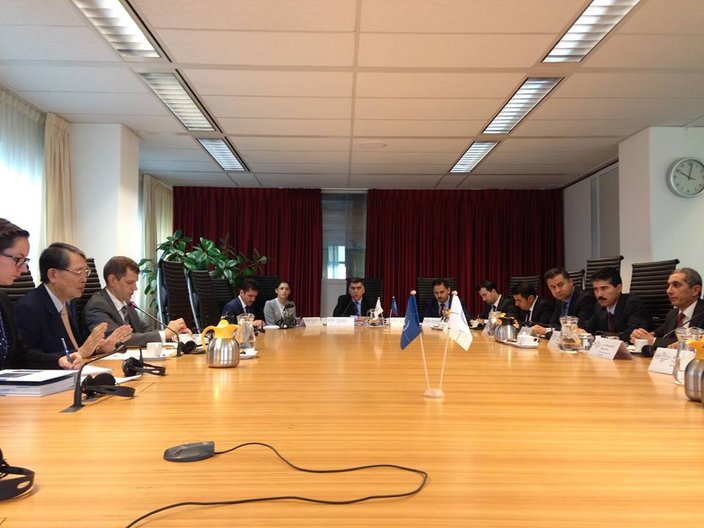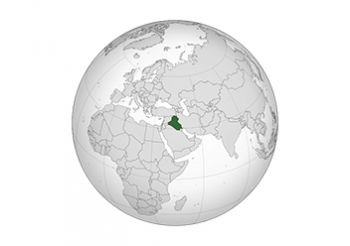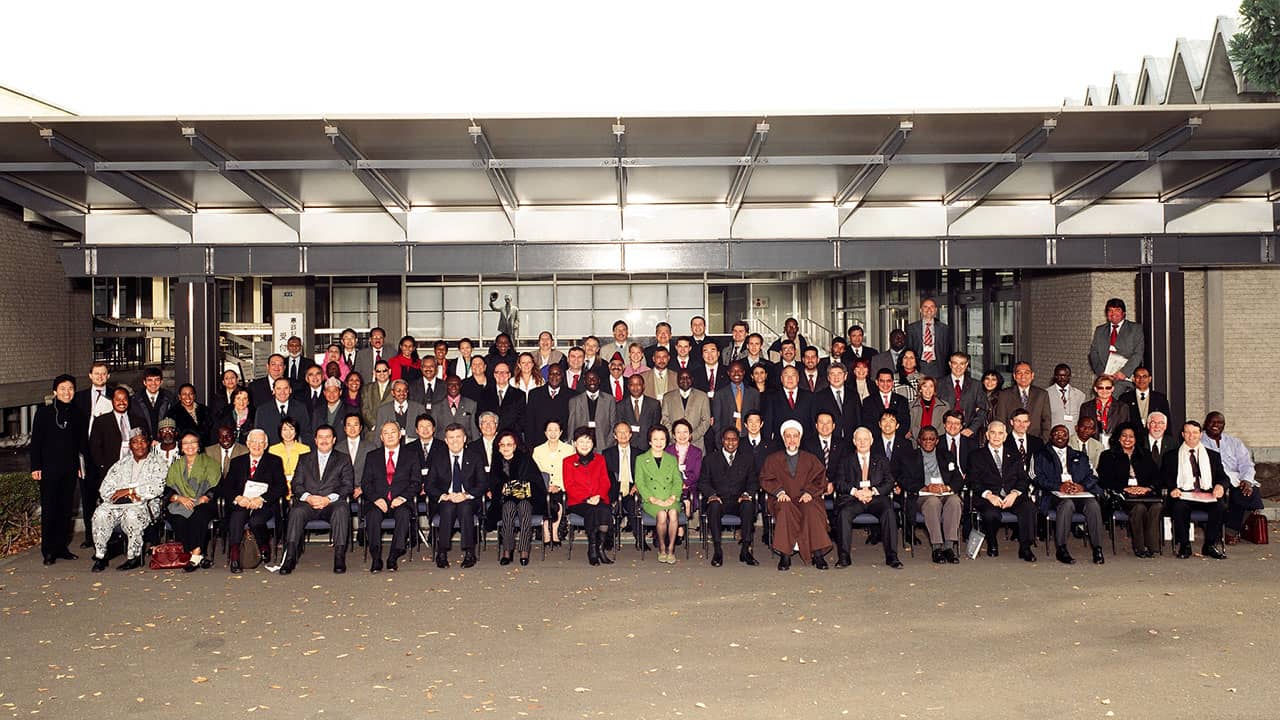PGA has been working in Iraq to promote the ratification and implementation of the Rome Statute. PGA intensified its efforts since June 2014, in the context of a dramatic rise of mass atrocities stemming from the seizing of territories by ISIS/ISIL/‘is’, which is entailing the commission of crimes against humanity, war crimes and even acts of genocide against religious and ethnic groups and minorities who had been living peacefully for centuries in Iraq.
PGA engages with Parliamentarians from Iraq to foster political will for the ratification and has in parallel reached out to the government by sending an open letter to the Prime Minister encouraging ratification. PGA has also launched an official call on Iraq to ratify the Rome Statute to raise awareness with the public opinion in the region and worldwide on the necessity to put an end to the violence and to ensure accountability for the atrocities committed in the country.
Rome Statute
Iraq has not ratified the Rome Statute
On 17 July 1998, under the regime of Saddam Husain, Iraq was one of the seven States that voted against the Rome Statute, which was adopted with the positive vote of 120 States and 21 abstentions.
Kampala Amendments of 2010
Iraq has not ratified the Kampala Amendments.
Status on the domestic implementation of the Rome Statute
Iraq does not have any domestic legislation implementing the Rome Statute.
Agreement on Privileges and Immunities of the Court (APIC)
Iraq has not signed the Agreement on Privileges and Immunities of the Court.
Progress and PGA Action
Originally, Iraq was one of the seven countries that voted against the adoption of the Rome Statute of the ICC.
Following the change of regime in 2003 and the consequent phases of occupation and transition, on 15 February 2005 the Council of Ministers of Iraq’s Interim Government led by Prime Minister Iyad Allawi issued Order Number 20, announcing Iraq’s decision to accede to the Rome Statute. The relevant press release stated that Iraq’s accession would become effective from the date it was published in the Official Gazette and noted that the Council of Ministers had decided to join the Court because the provisions of the Rome Statute embody the highest values shared by all of humanity and also because most of its provisions can be found in existing international treaties.
On 1 March 2005, Iraq’s interim Government withdrew its accession to the Rome Statute and cancelled its earlier decision to join the ICC. There have been no reports on decisions on the ICC by subsequent Iraqi administrations.
During 2012, President Song of the ICC wrote letters to heads of States, or government, and/or other relevant officials of more than a dozen non-States parties (Iraq included), urging them to consider joining the Rome Statute, outlining the benefits of the ICC membership and clarifying some common misperceptions.
During the same year,PGA had also been in touch with the late Vice-President of the ICC, the late Judge H.-P. Kaul, who had addressed a conference in Iraq and informally suggested to Iraqi authorities the active involvement of MPs in the Campaign for the Rome Statute of the ICC as a means to educate Parliament on the importance of this subject-matter.
On 12 September 2014, PGA sent a letter to the Prime Minister of Iraq to promote the ratification of the Rome Statute to ensure accountability, reconciliation, deterrence and guarantees of non-repetition for the Iraqi population, which has been the victim for several months of serious international crimes.
On 15-16 October 2014, PGA organised the 6th Session of the Working Group on the Universality of the Rome Statute of the International Criminal Court in the Middle East and North Africa (MENA) Region at the House of the Representatives of Jordan in Amman in order to create political support and discuss issues related to the universality of the Rome Statute in the region and explore the best ways to advance the ratification or implementation of the Rome Statute. The participants included Mr. Faig Sheikh Ali, MP, from Iraq who expressed his firm commitment to launch a ratification campaign in Baghdad, in light of the importance of the ICC ratification and acceptance of jurisdiction to bring about accountability and the end of impunity for ISIS/ISIL/‘is’ mass atrocities. Iraq offered to host the next session of the Working Group.
Upon his return in Iraq Mr. Faig Sheikh Ali, MP has led several initiatives to raise awareness and promote ratification, such as a briefing in the parliament of Iraq, the transmission of a Report on the ICC to all MPs with the support of the Speaker, and the holding of bilateral meetings with Ministers in charge of Rome Statute dossier and the new Prime Minister of Iraq.
Following his actions, numerous Iraqi MPs have joined PGA, including Vian Dakhil, MP who had denounced in the Parliament of Iraq in August 2014 the heinous crimes committed against the Yazidi community by ISIS/ISIL.
Following the repeated calls and commitments of PGA Members in Iraq and Lebanon to promote the ratification processes in those two countries, PGA will be organising a Parliamentary Seminar on the International Criminal Court (ICC): Towards the ratification of the Rome Statute of the ICC by Iraq and Lebanon, which will be hosted by Parliament of Lebanon, in Beirut on 27 and 28 July 2015. The Seminar will aim to enhance the role of Parliamentarians in the region to promote the universality of the ICC through the ratification/accession to the Rome Statute and to ensure the ICC system is implemented in a fair, impartial and effective manner. After a public Opening Session, the Seminar will foster political, legal and strategic consultations behind closed doors between Parliamentarians from Iraq, Jordan, Lebanon and Morocco, as well as with high-level representatives of the ICC, the United Nations, experts and observers from the Iraqi and Lebanese Government and the judiciary.
ICC investigations
On the 13th of May 2014, the Prosecutor of the International Criminal Court (“ICC”), Mrs.Fatou Bensouda, announced that she had decided to re-open the preliminary examination of the situation in Iraq, previously concluded in 2006, following submission of further information to the Office of the Prosecutor in January 2014 in accordance with article 15 of the Rome Statute.
The new information received by the Office alleges the responsibility of officials of the United Kingdom for war crimes relating to the purported systematic detainees’ abuses in Iraq between 2003 and 2008. Preliminary examination may, or may not, pave the way for full-fledged investigations, depending on the availability of genuine national proceedings for the same conduct being examined by the OTP. In fact, the ICC is a Court of last resort and domestic procedures have precedence.
Iraq is not a State Party to the Rome Statute, however the ICC has jurisdiction over alleged crimes committed on the territory of Iraq by nationals of States Parties. These include alleged crimes against humanity and acts of genocide that may be committed by nationals of States Parties to the Rome Statute who adhere to ISIS/ISIL/‘is’.
UPROn February 2010, at the Human Rights Council Universal Periodic Review (UPR) session, Iraq received a recommendation from Mexico to ratify the Rome Statute. Last UPR was conducted on 3 November, 2014 and Iraq received the recommendation to ratify to Rome statute by the following states: Rumania, Tunisia, Hungary, Slovakia, Belgium, Estonia, Netherlands, Uruguay, Switzerland, France and Guatemala. Next UPR is due in April 2019. |
Additional InformationNew elections in Iraq: The Iraqi Parliament elected its new speakership on July 2014. Mr. Salim al-Jiburri, MP (from the Sunni alliance) is the Speaker and the Deputy Speaker is Humam Baqer Abdlumajeed Hamoudi (from the Islamic Supreme Council – National coalition). The new Iraqi cabinet headed by Mr. Haydar al-Abbadi (from the Daawapary) has been approved by the Iraqi Parliament on 9 September 2014. |


